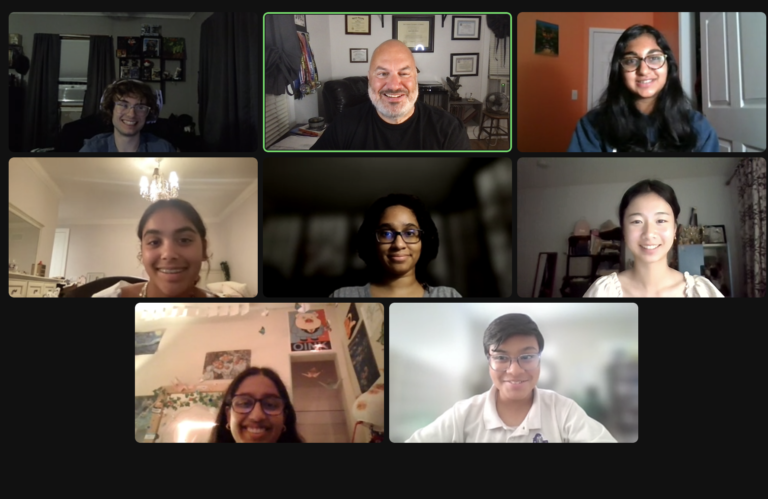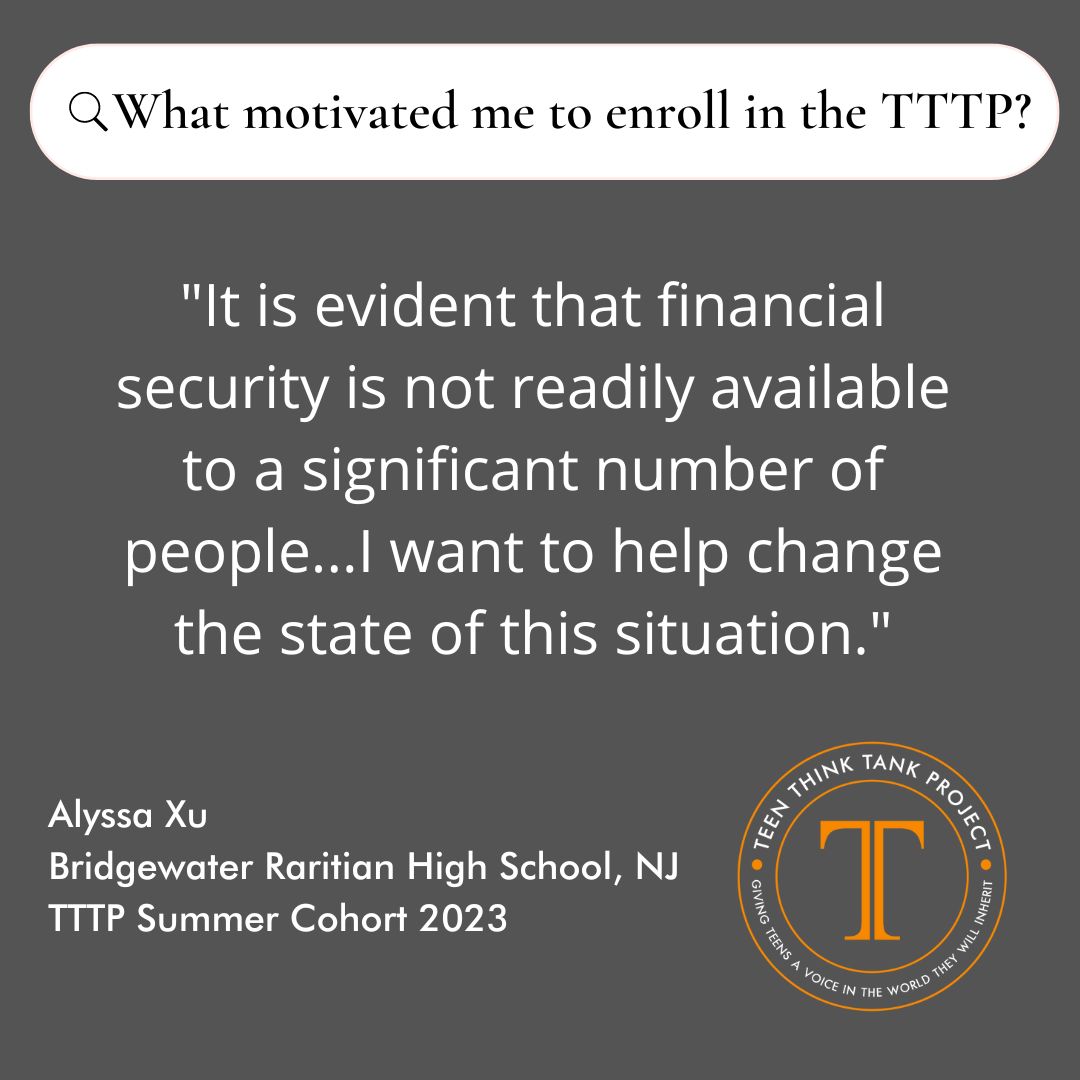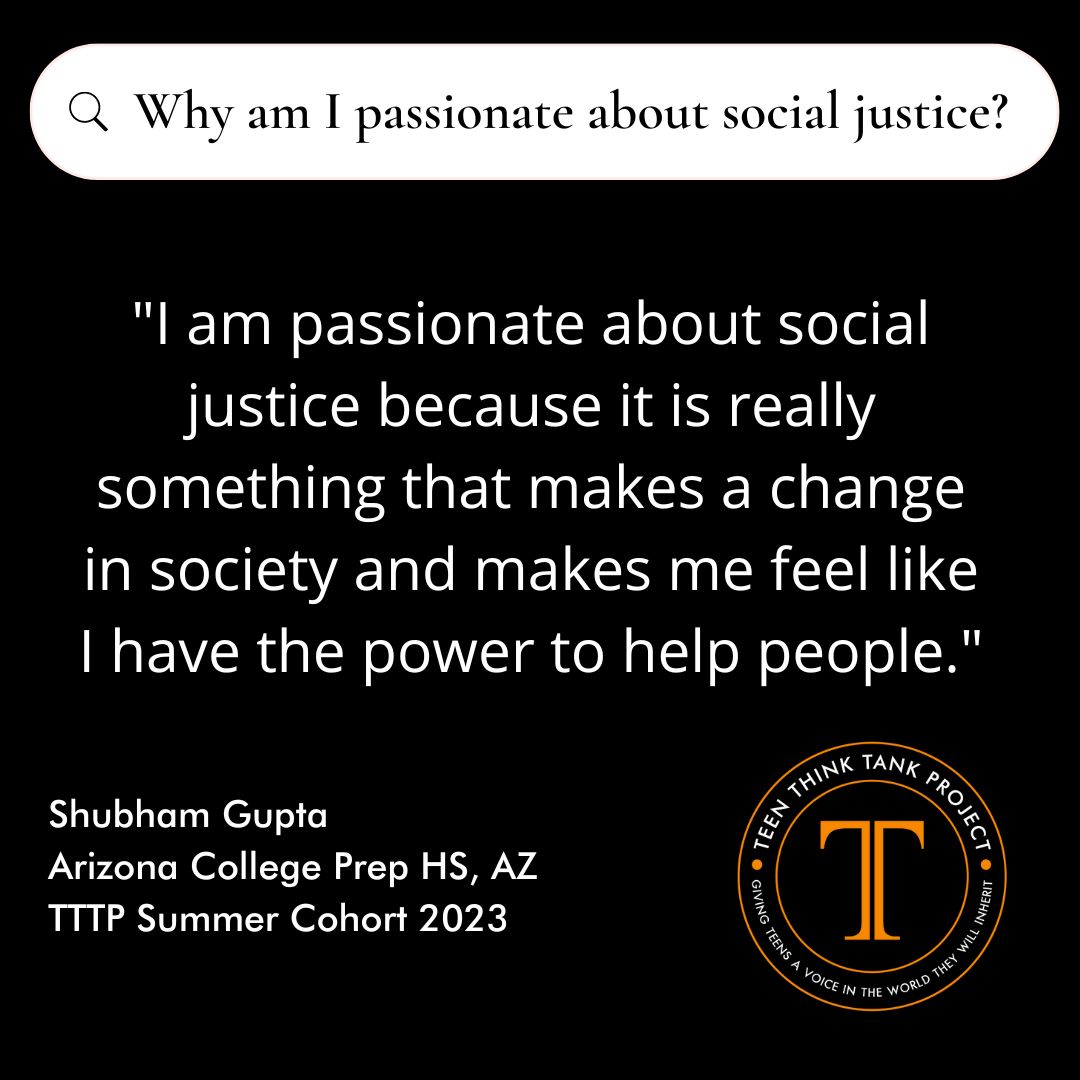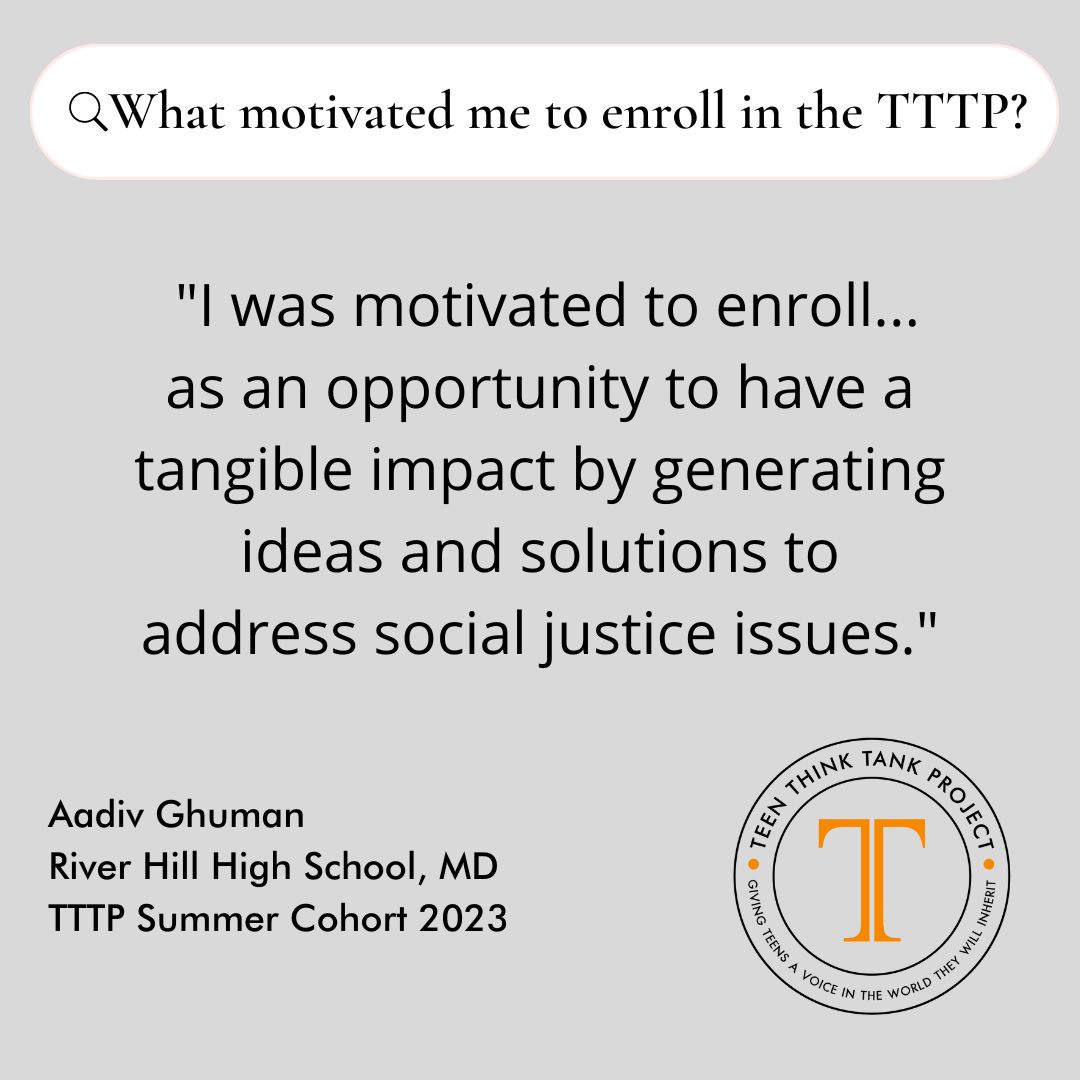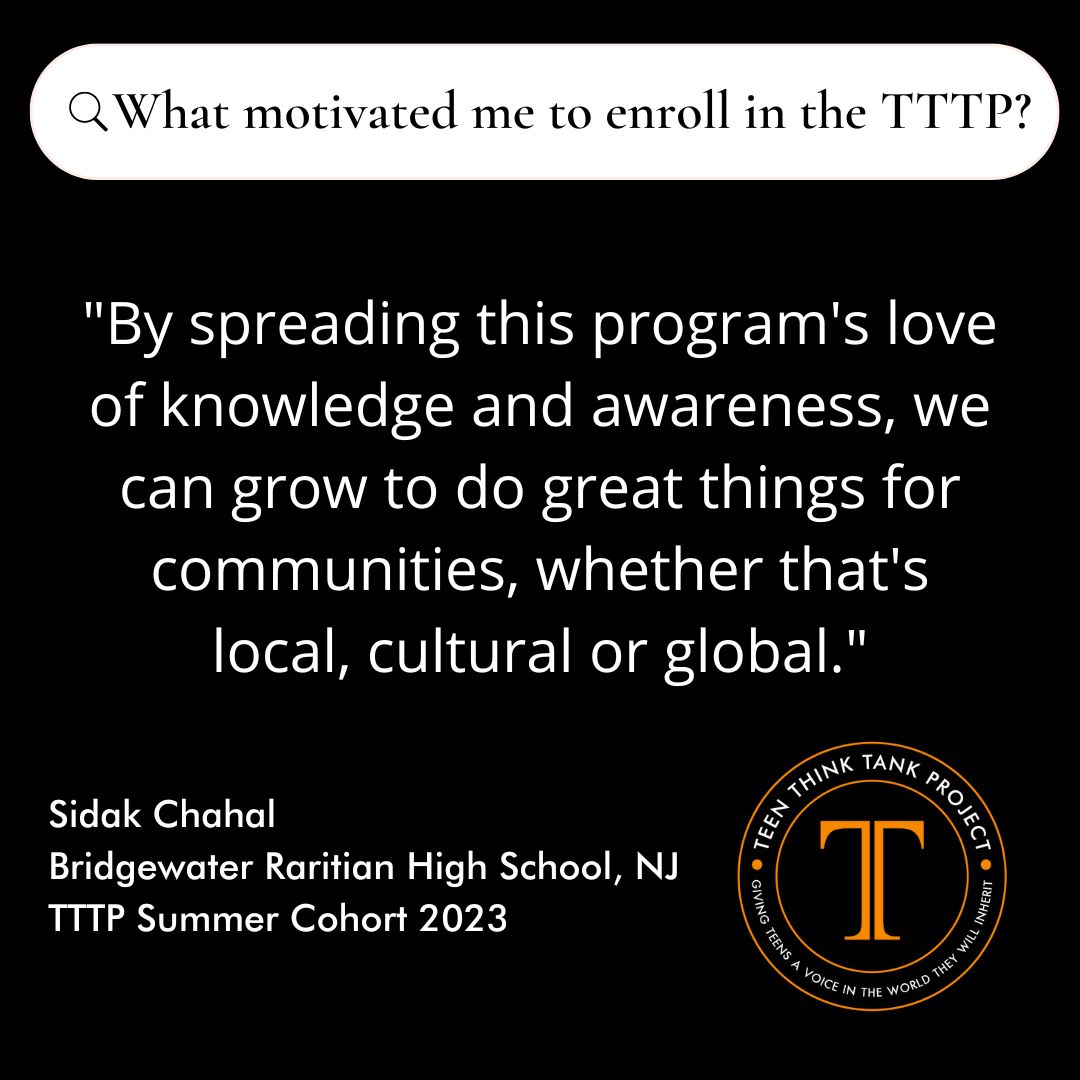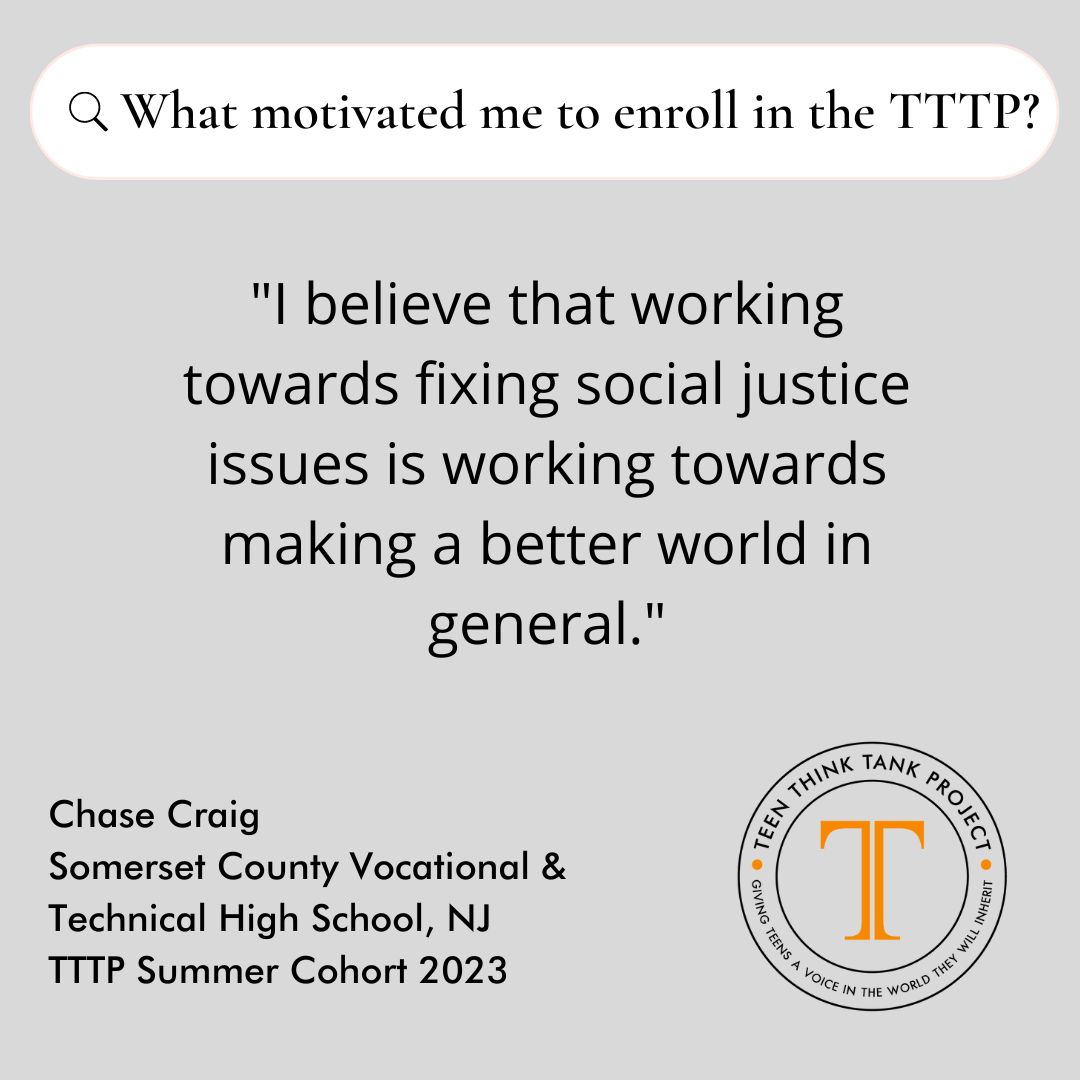Financial Security
The test of our progress is not whether we add more to the abundance of those who have much; it is whether we provide enough for those who have too little.
Franklin D. Roosevelt
Our Mission
Throughout history, financial insecurity has plagued those members of our society living below the poverty line, especially members of underrepresented communities, including minority groups and undocumented immigrants. These individuals are routinely denied stable housing, legal protections, and various social freedoms.
This cohort, comprised of teen change agents, has committed itself to investigating these issues and identifying the financial initiatives, educational opportunities, policy reforms, and community-focused services necessary to amend these problems.
Our Work
On April 23, 2023, the Teen Think Tank Academy’s Financial Security Research Cohort presented its policy framework in a live webinar.
Our Framework
Poverty Reduction in America: A Holistic Approach to Financial Security
In America, 37.9 million people (11.6% of our population) live below the poverty line. While many view the financially unstable as a drain on our society through their perceived reliance on “social programs” and “welfare benefits,” the reality is that by failing to address the systemic and underlying issues that prevent nearly 40 million people from escaping poverty, America’s economy suffers billions of dollars a year in productivity loss, health expenditures, and criminal reform programs.
Skyrocketing housing costs have exacerbated conditions for those living in poverty. Low-income households are forced to spend most of their paychecks on rent, preventing them from taking control of their finances and reducing their economic mobility. To compound issues, there are social constructs and systemic biases that are disproportionately affecting the minority population. While many existing government programs are intended to help alleviate problems for low-income Americans, they are insufficient and flawed in many ways.
If America is going to implement effective and lasting poverty reduction strategies, it must address the economic, social, and legal impediments preventing all Americans from reaching financial security.
Economic
A shortage of affordable housing costs the American economy about 2 trillion dollars annually in wages and productivity: the growth in America’s gross domestic product (GDP) between 1964 and 2009 would have been 13.5% higher if families had better access to affordable housing (National Low Income Housing Coalition et al., 2019). Families with constrained opportunities to increase earnings cause slower GDP growth; therefore, the nation is best served if it addresses the economic impediments preventing Americans from increasing their productivity and wage opportunities.
Social
Economic impediments are not the sole culprit preventing poverty-reduction strategies from taking hold in the United States. There are underlying social complexities that are also at play in this equation. Factors such as race, gender, sexuality, familial status, culture, and socioeconomic class have historically acted as constraints, limiting many minority groups from building generational wealth or living above the poverty line. Though many amends have been made to help these communities, there is still a long way to go before permanent and substantial change has been made. In this forthcoming section, we will explore the deeper aspects of the causes and effects of poverty and how it grew to be such a pervasive problem in the United States.
Legal
Legislation has traditionally played a key role in addressing the issues surrounding financial insecurity. Specifically, social security benefits were created “to keep American families from becoming destitute – in health or the essentials of life” (Altmeyer et al., 1945). Today, this mission statement has changed to “provide for the material needs of individuals and families” (SSA et al., 2023). However, the basic premise behind Supplemental Security Income remains unchanged: this program assists families in poverty through monetary grants based upon an array of factors including but not limited to assets, marriage status, residential situation, employment status, and citizenship status (SSA et al., 2023). Despite this goal, the SSI program provides little relief for most Americans in need.
Policy Recommendation
There are numerous impediments to financial security and equity, each with its own separate set of solutions to help remedy these issues. However, each of these policy statements truly focuses on the same idea. Throughout history, financial insecurity has disproportionately affected those below the poverty line as well as minority groups through the denial of stable housing, legal protections, and various social freedoms. Therefore, reforms, including education, government-funded aid, and other social or community-focused services, are necessary to amend these problems.
Our Story
Learn about the teen change agents who dedicated their entire summer to changing the economic, social, and political landscape to ending poverty in America!
Our Team
Our Scholarship
Each session, the Teen Think Tank Project awards a cash scholarship to the research associate who best exemplifies the values of our community. Since all of our talented cohort members are eligible to apply, awarding the scholarship is an extremely difficult task. This session was no different. We thank all of our research associates for applying, commend our finalists, Alyssa Xu and Reya Rasul, for their hard work and dedication!

